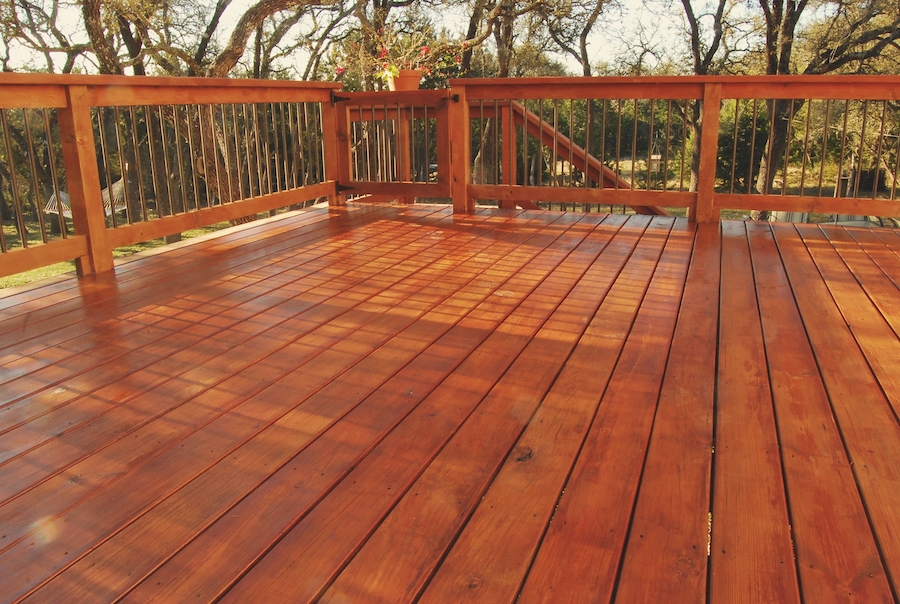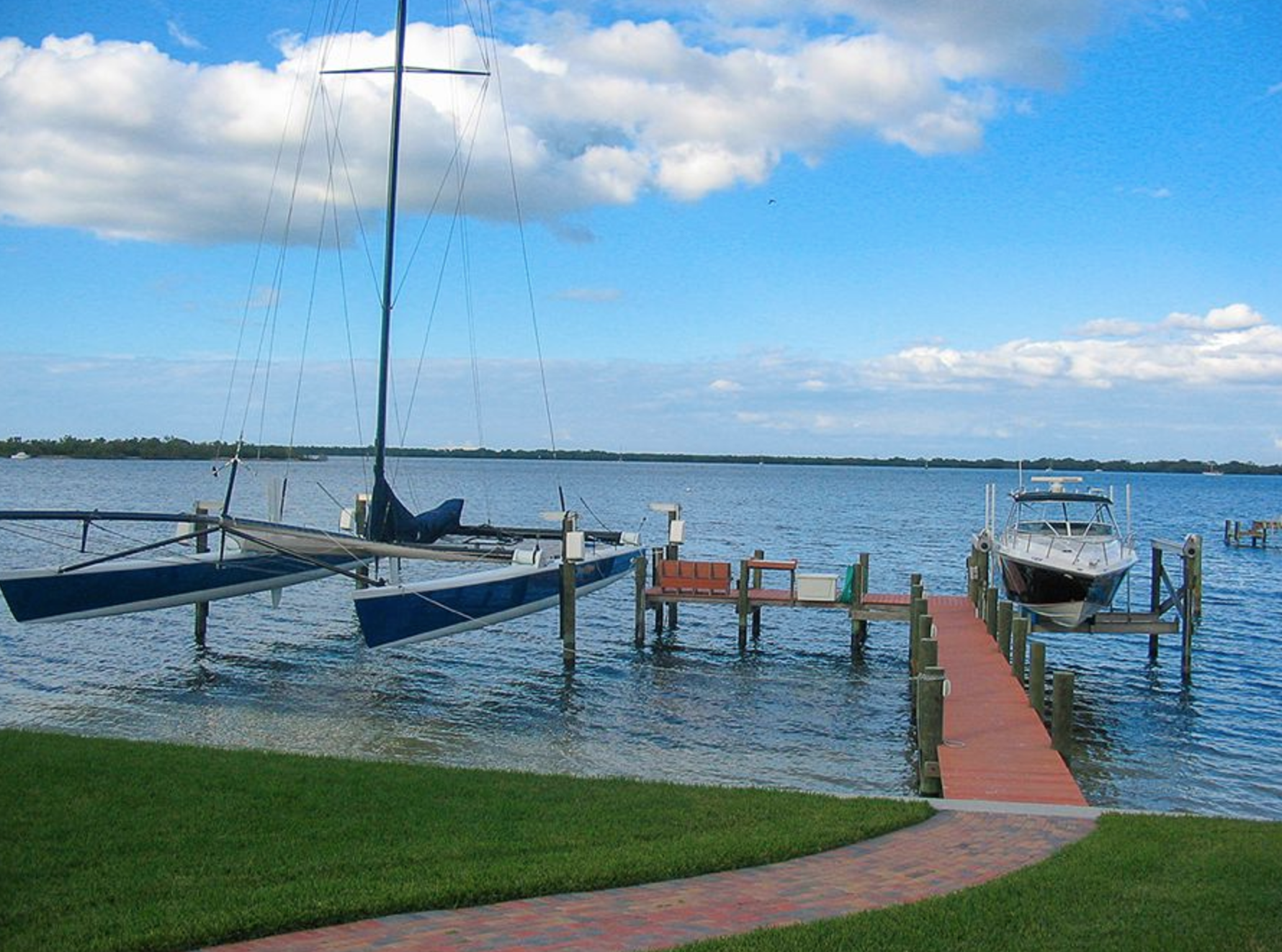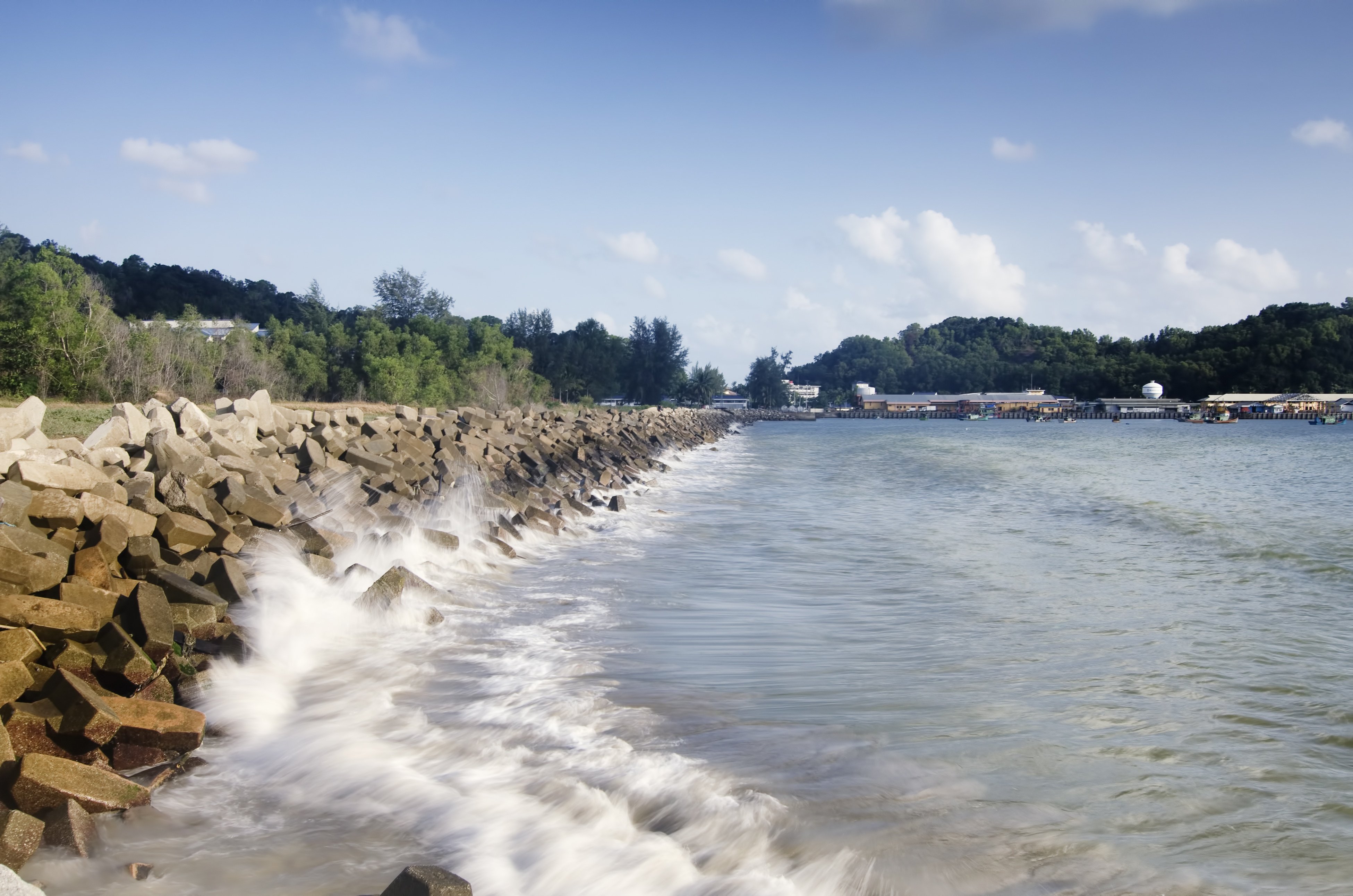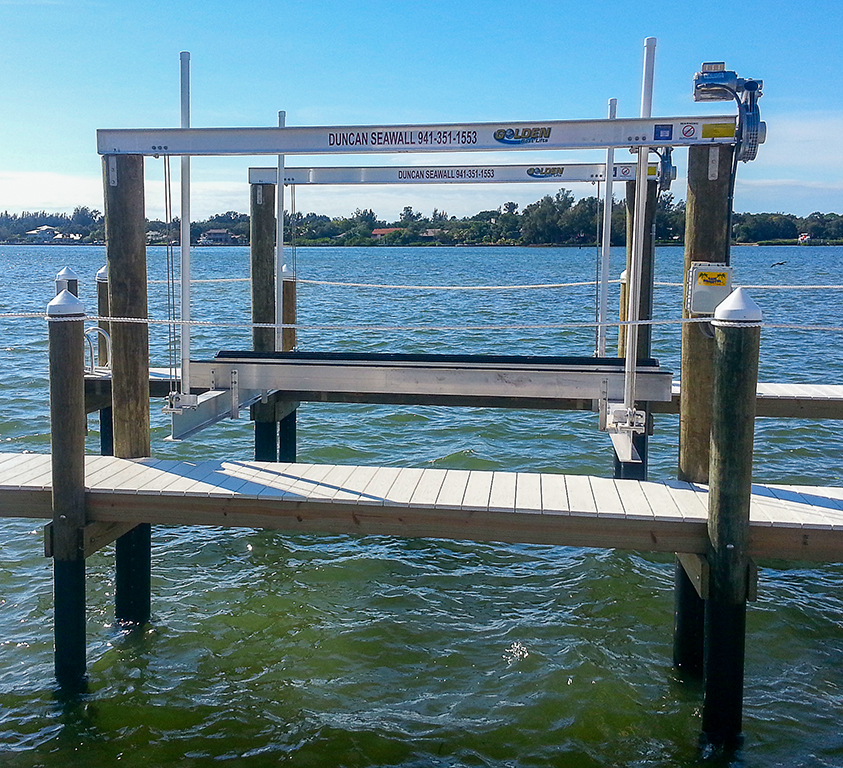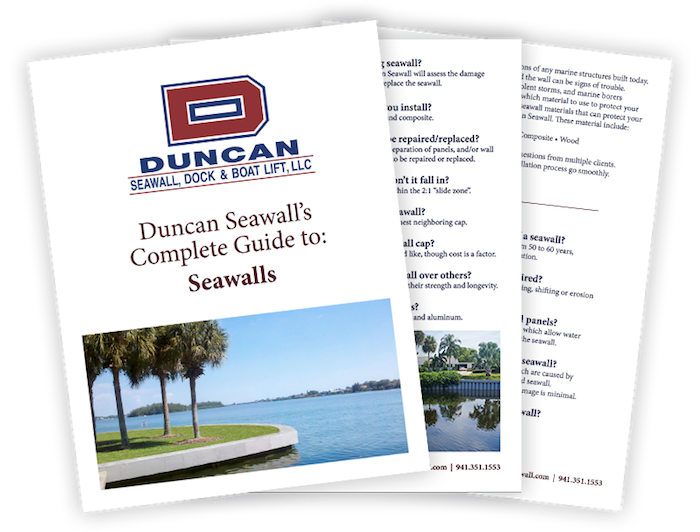A dock consists of many components, including the piers, beams and hardware that connects everything together. However, no part on a boat dock is more visible than its deck. The deck is more than a necessary platform for walking, sitting and working; the deck also makes a strong aesthetic statement and provides most of the appeal of your dock. In addition, decks endure the brunt of the punishment from the sun, rain and other natural elements found in the marine environment, and inadequate decking materials can cause disappointment when they fail to hold up.
Related Blog: Vinyl Seawall Panels: When and Where To Use Them
That is why the choice of decking material is vital to making sure that your deck is long-lasting and maintains its visual appeal. Several considerations come into play when planning your deck and choosing a decking material, including cost, visual appeal, resilience, and maintenance concerns. While there are a number of material options available to dock owners, many owners come down to choosing between natural wood and composite materials. Below is more information about each and what you should know before making your decision.
Natural Wood
The "original" choice for docks everywhere, natural wood is a commonly used material for decks. Wood provides a natural-appearing surface and properly maintained wooden decks are undoubtedly beautiful. In addition, wood provides a feel that is warm and comforting to the touch, which makes for a pleasant barefooted experience.
However, as popular as natural wood as a decking material is, it comes with a number of limitations and considerations for use. First, since wood is a purely organic material, it is vulnerable to rotting, drying and pest damage. In addition, wood will twist and warp due to constant exposure to moisture and sunlight. This tendency can cause decking to pull loose from its underlying support structure and can result in splintering and other unsightly and potentially dangerous hazards.
Maintenance can help prevent some of these problems and slow down the ravages of time, but it needs to be performed on a frequent basis to be effective. Maintenance needs of wooden decking include power washing at least annually and staining every other year or two. In addition, wooden decking needs to be closely monitored for pest infestation and any discovered activity needs to be dealt with quickly.
Composite Materials
Composite materials are also commonly used for decking on docks. Composite materials are manufactured from a combination of natural and synthetic fibers, and this allows composite decking to be fabricated in an almost limitless variety of textures, shapes and colors. Decking composed of composite materials can mimic wood grains and provides the look and even feel of natural wood as a result.
In addition, composite materials are also much more resistant to the elements than wood. Composite materials are water-resistant and do not rot, warp or twist. Happily, pests avoid composite materials and decking made from them possesses excellent ultraviolet(UV)-resistance characteristics. For the most part, decking made from composite materials does not require much in the way of maintenance other than sweeping and an occasional washing.
Cost-wise, composite materials are typically a bit more expensive than natural wood. As a result, the upfront costs associated with constructing a dock with composite decking will be higher, though the cost difference can vary depending on what types of woods are chosen. However, it is worth mentioning that composite decking is likely to cost owners much less over the long-term due to longer materials lifespan and reduced maintenance requirements.
Ultimately, composite materials create decking that is attractive, long-lasting and relatively maintenance-free. For many dock owners, composite materials provide the perfect decking material alternative. However, before purchasing composite decking, be sure to select a reputable manufacturer known for their expertise with composite materials and that provides a long warranty that backs up their confidence in the product.
If you have additional questions about choosing a decking material for your dock, then be sure to contact Duncan Seawalls for assistance. We understand how to help you make the best choice and can also install your new dock, seawall or other projects.



